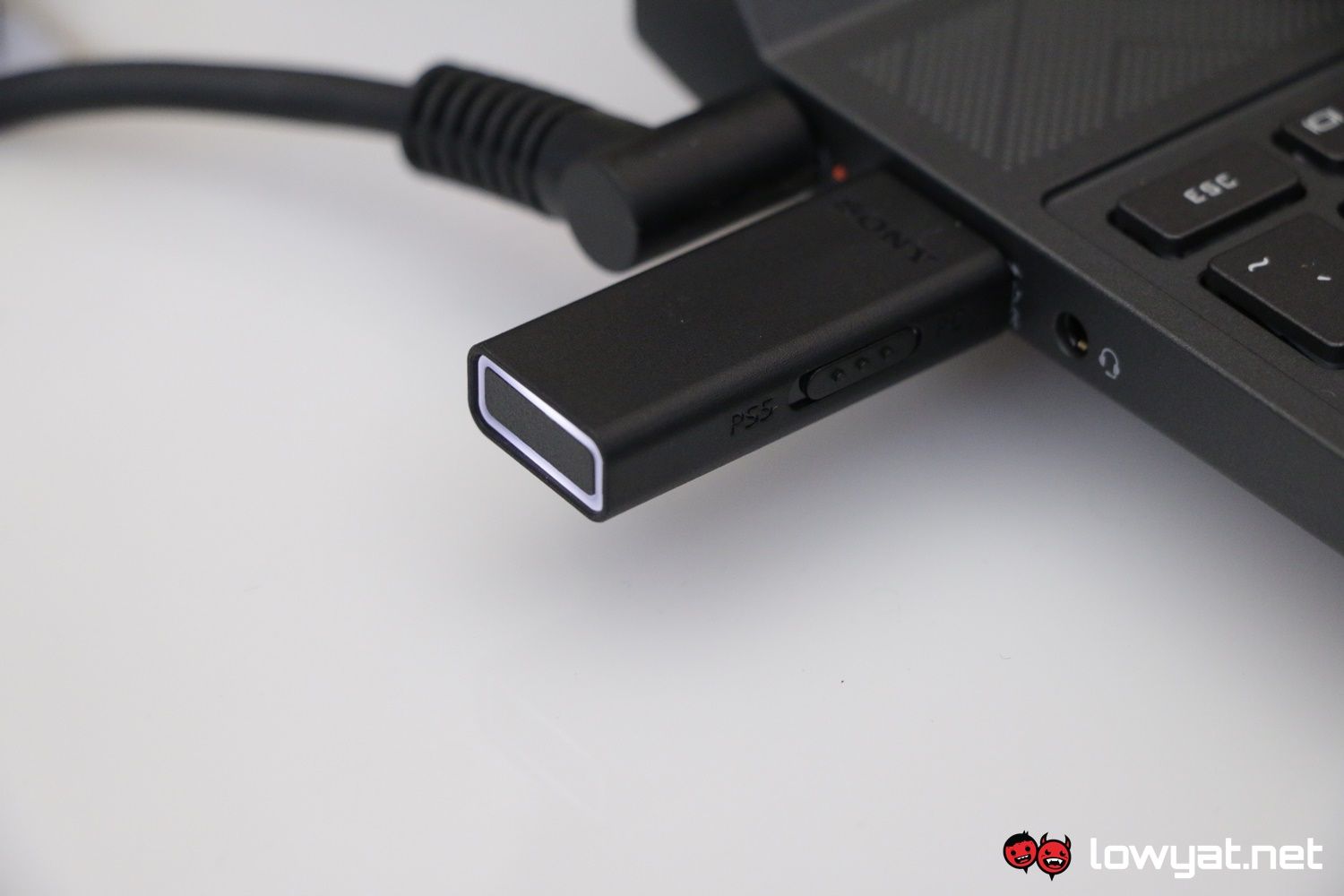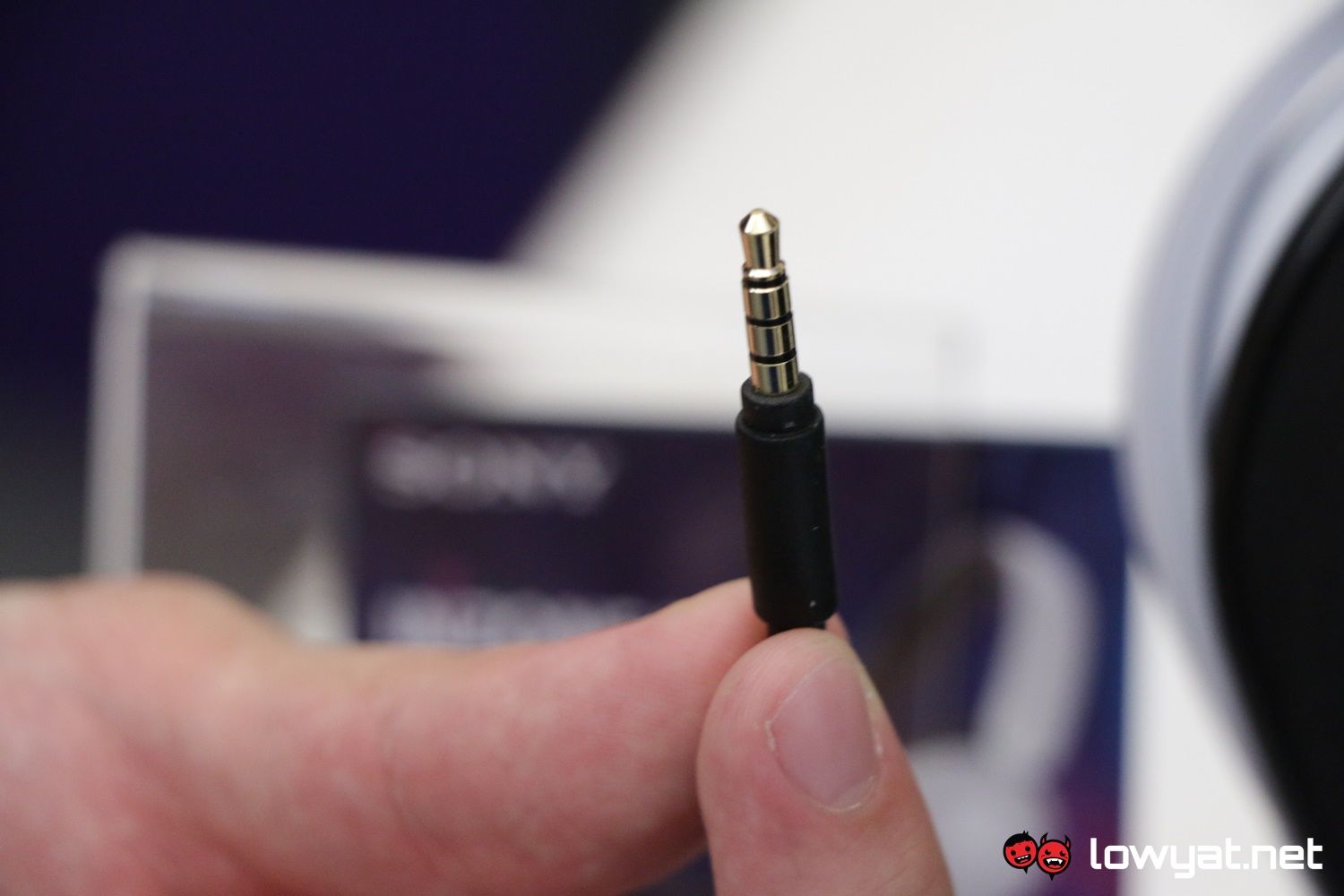The first thing I noticed, and I’m sure you will too, is that the Inzone H3, H7, and H9 more or less share the same design and aesthetic. The one (of several) physical distinctions that set them apart, though, is that while the H7 and H9 are wireless, the H3 is the only one of the three that is wired and must be connected to a medium via its 3.5mm audio jack. The good news is that out of the box, Sony includes a USB-A to 3.5mm connector with the H3. So, even if your device is devoid of the physical audio feature, there’s still a workaround for it. For the Inzone H7 and H9, these gaming headsets come with their own dedicated dongle and more specifically, it comes with a dedicated switch that allows the headphones to switch their function between running on a PlayStation 5 (PS5) console or the PC. It even has a built-in white LED that subtly glows to indicate that the tool is functioning properly. One feature that Sony promises with all three Inzone headsets, though, is the 360° Spatial Audio feature, which is essentially its own version of surround sound. While I did not manage to test it out with the H3 and H7, the H9 was connected to the laptop they had for demonstration purposes. To put it simply, that Tempest Audio? It impressed me ever so slightly.
Again, I was unfortunately unable to take the Inzone H9’s audio for a full spin, for a couple of reasons. First, there was a small queue of people that were equally as eager to try out the headset. Second, Sony didn’t actually have a lot of material to sample through with the headset, so we’ll just have to wait until the brand manages to send us a review unit to fully put it through its paces. That being said, it is actually surprising to see Sony more than willing to implement its Active Noise Cancellation (ANC) technology into the Inzone H9, but again, being a premium quality audio device means that the brand is sparing no expense. After all, these cost RM1299, so it’s only fair that you get the full monty.
But let’s take a step back and talk about the Inzone’s overall design for all three headphones. Again, these are tiered headsets, and the H9 happens to be the crème de la crème of the lot, while the H3 really is the entry-level of the lot. Despite that, the earcups for all three headsets clearly follow the same lines and contours; they’re reminiscent of the older headphone designs, almost as if Sony is giving a nod to the classics. The microphones, for that matter, are an integral part of the build, literally: they don’t seem to be removable, not like gaming headsets from other brands, such as HyperX or Corsair. For that matter, the price range between the three Inzone headset also determines the quality and comfort levels of the material on each earcup. For the H9, you get a soft leather material, along with memory foam that fits snugly around your head. The H7 and H3, however, appear to use nylon around the foam, and you can actually see the discrepancy between quality between the two; despite using the same material, you can actually see the stitching on the earcups for the H3, while the H7 definitely looks more seamless. As for the comfort level: if I didn’t make myself clear at the start, they aren’t as nice as the H9.
In any case, Sony actually passed us an Inzone H3 for review, so you should be seeing a review of them going up in the future. As for the H7 and H9, the latter is still up for preorder while the H7 is already available for purchase at RM1099.


